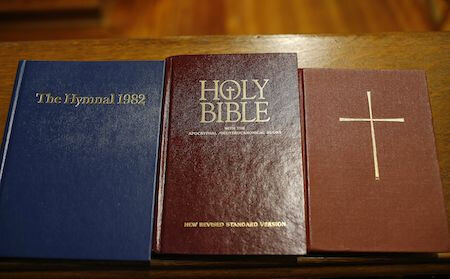What's in a Name?

"Name this child."
Its a startling question, if you really think about it. And the priest said it with such authority.
"Name this child."
"Evelyn Mae Hermerding," my wife and I responded.
I know we named her when she was born. We had it written on her birth certificate and everything. But this seemed much more...official, or solemn, or something. There we were, standing up in front of the whole church, ready for our baby girl's baptism. And the priest took the baby from her mother's arms in order for God's grace to wash over her, like water on the forehead. Evelyn Mae Hermerding. She's named after one of my favorite writers, Evelyn Underhill. A name is a powerful thing. How much of her future will be determined by it?
Which leads me to reflect: when you name something, you know it. You understand it. You fit it within your worldview of describable things, of things that have a place, a part, in your universe. A name is a powerful thing. It was the responsibility given to Adam, to name the animals. The job started out strong with names like hippopotamus and rhinoceros. But by the end of the day fatigue had set in and he was like, "ox"..."ant".
For the task of naming this child born in a manger, God Himself gave the name to the angel, who then gave it to Joseph, who then gave it to Jesus. Jean Danielou says that names given by God in both the Old and New Testaments always "express both the person and the mission that is being given.” [1] The Angel says, “You shall call his name Jesus, for he will save his people from their sins.”
Jesus means savior, and Jesus is savior. And we, who have had the water wash over our foreheads, are called a name: Christian. Little Christ. A name, I daresay, which is a high calling indeed. Perhaps we can resolve to live up to that incredible name in this New Year.
[1] Danielou, The Infancy Narratives, 47.



